Spring 2018 eNewsletter
CIGLR Spotlight
Welcome 2018 Great Lakes Summer Fellows!
Each year, CIGLR has the pleasure of hosting a group of bright, upcoming scientists as part of our Great Lakes Summer Fellows Program. During the course of their 12-week fellowship, students are exposed to a broad range of disciplines while working on a substantive research topic under the mentorship of a CIGLR or GLERL scientist. This summer we welcome 9 students to the program. In addition to a heavy research focus, the program includes career preparation activities and community outreach opportunities. The Great Lakes Summer Fellows program is in partnership with NOAA GLERL.
The 2018 Great Lakes Summer Fellows include:
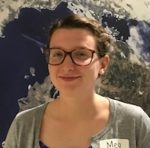
Meg Giitter
Meg is mentored by Drs. Mark Rowe (CIGLR) and Craig Stow (GLERL). She will develop statistical models to predict the response of Lake Erie (e.g., hypoxia, algal biomass, nutrient concentrations) to nutrient loads and physical variables using a large database of in-lake observations from federal and state agencies and universities. Meg is a recent graduate of St. Mary’s College of Maryland, where she studied Biology and Biochemistry.

Alex Johnson
Alex is working with Dr. Thomas Johengen (CIGLR) and Steven Ruberg (GLERL). He will support and participate in field and laboratory research as well as weekly experiments designed to monitor the timing, extent, distribution, and toxicity of cyanobacterial HABs in western Lake Erie and Saginaw Bay, Lake Huron. Alex is a senior at Cleveland State University studying Environmental Science and Biology.

Cindy Lebrasse
Cindy is a Ph.D. student at North Carolina State University. She is working with Drs. Qianqian Liu (CIGLR) and Eric Anderson (GLERL) to study how hydrodynamic drivers and anthropogenic stressors affect nutrient and plankton dynamics in Muskegon Lake.

Haoran Liu
Haoran is mentored by Drs. Edward Rutherford (GLERL) and Hank Vanderploeg (GLERL). He will quantify how different types of sampling gear (e.g., traditional plankton nets versus the Multiple Opening/Closing Net and Environmental Sensing System (MOCNESS)) affect density estimates of Mysis, Bythotrephes, and larval fish. Currently, Haoran is a graduate student at the University of Maryland studying Earth and Ocean Sciences.
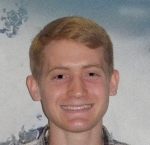
Benjamin Moran
Benjamin is working with Drs. Hank Vanderploeg (GLERL) and Craig Stow (GLERL) on a project studying the drivers of zooplankton diel vertical migrations using the statistics program R. Benjamin is a recent graduate of Northeastern University in Boston, Massachusetts where he studied Marine Biology.
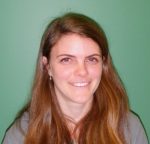
Sara Prendergast
Sara is working with Drs. Edward Rutherford (GLERL) and Mark Rowe (CIGLR), investigating factors that influence alewife population variability in Lake Michigan. Sara is a first year master’s student at the University of Michigan School for Environment and Sustainability.

Jenny Rhee
Jenny is a recent graduate from the University of Louisiana at Lafayette where she studied Biology. Jenny is working with Joe Smith (CIGLR), Steve Ruberg (GLERL) and Dr. Philip Chu (GLERL) to analyze archived real-time data, their formats, and documentation from a series of buoys and stations in and around the Great Lakes, and develop (and possibly begin to execute) plans to re-format and store the data in a more accessible format or data management system.
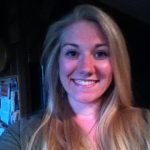
Jenny Tompkins
Jenny is working with Dr. Tian Guo (CIGLR), Devin Gill (CIGLR), and Drs. Mark Rowe (CIGLR) and Victoria Campbell-Arvai (UM). She will be trained in social science methods, and participate in data collection and management related to the impacts of harmful algal blooms (HABs) on tourism, water-based recreation, and public perception. Jenny is a recent graduate from Allegheny College in Environmental Science.
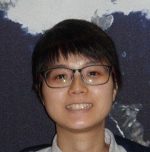
Ting-Yi (Franky) Yang
Franky is currently a Ph.D. student at Ohio State University in the College of Earth Sciences – Geodetic Sciences Department. Franky is working with Dr. Jia Wang (GLERL), Haoguo Hu (CIGLR), James Kessler (CIGLR) and Dr. Philip Chu (GLERL) to process and update Great Lakes ice data to learn more about long-term trends in ice cover from the extreme highs and lows of recent years.
